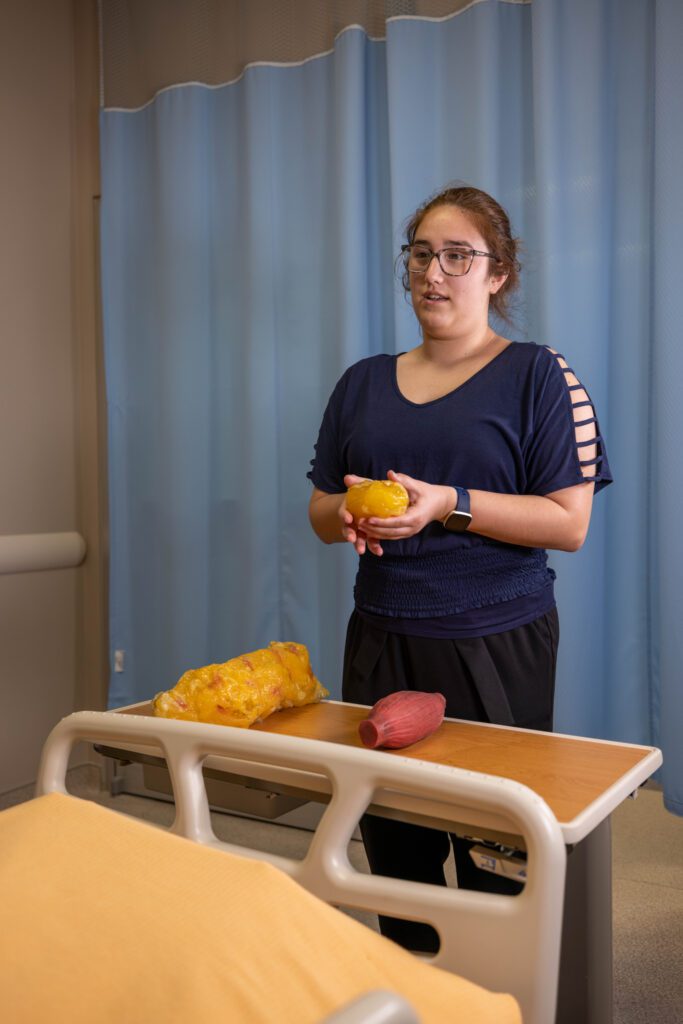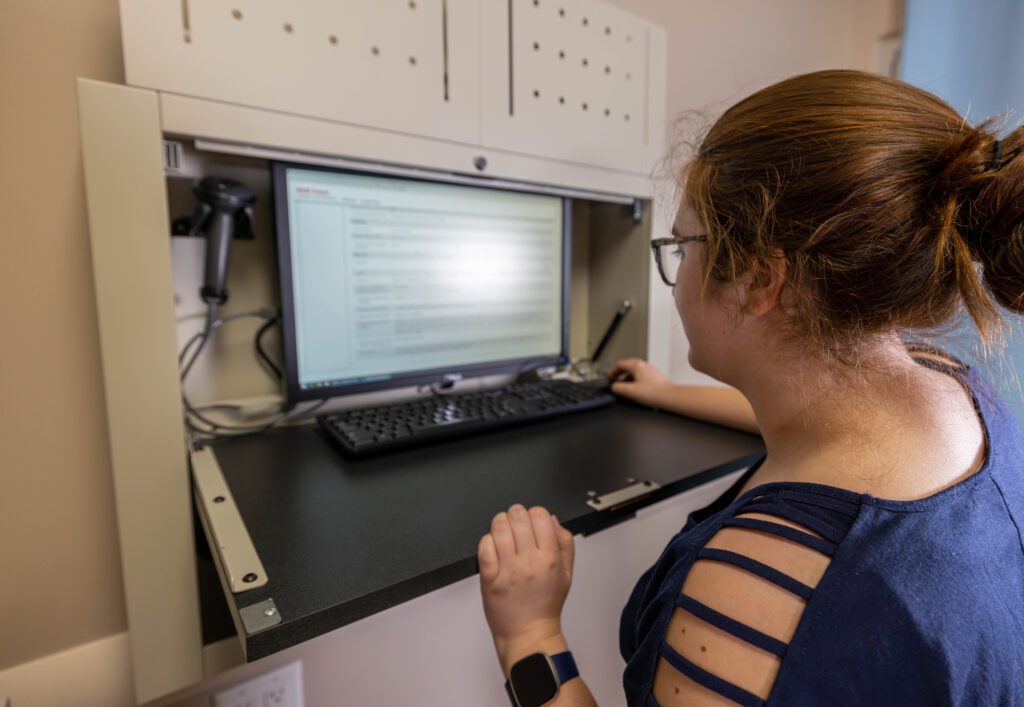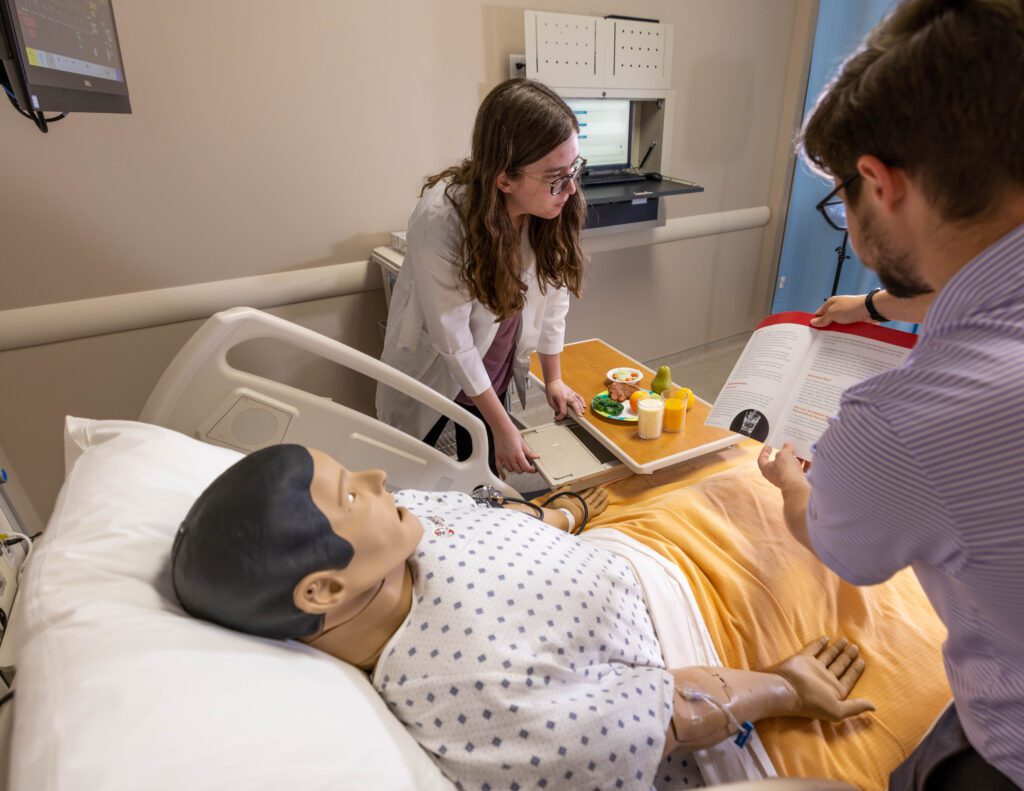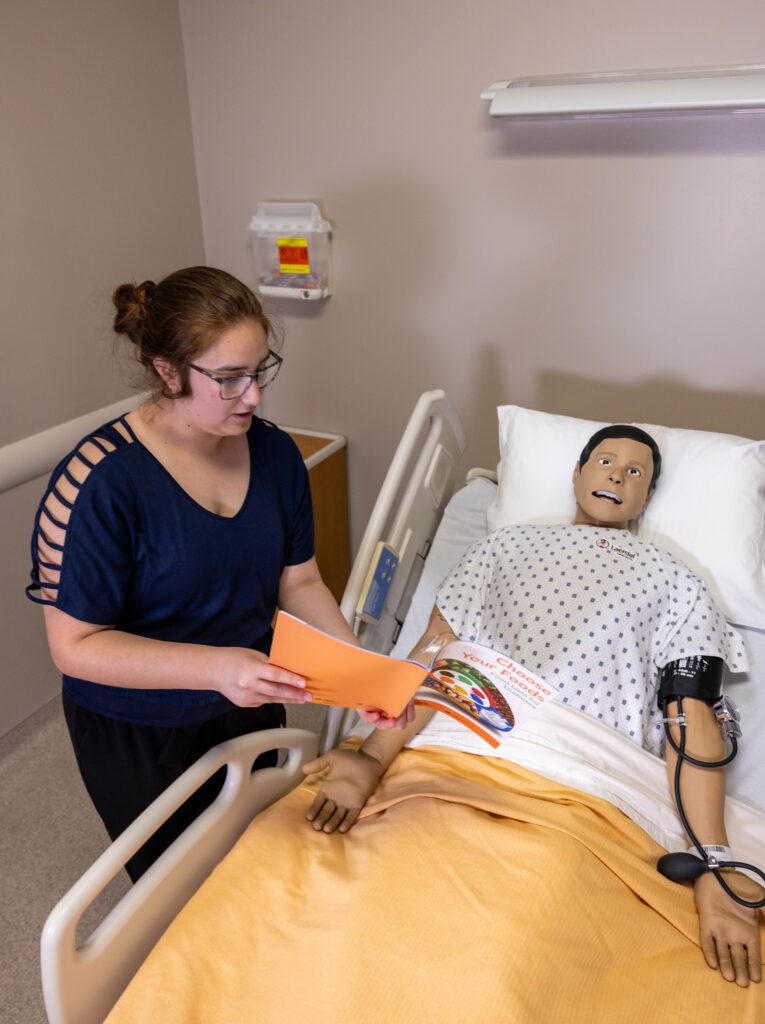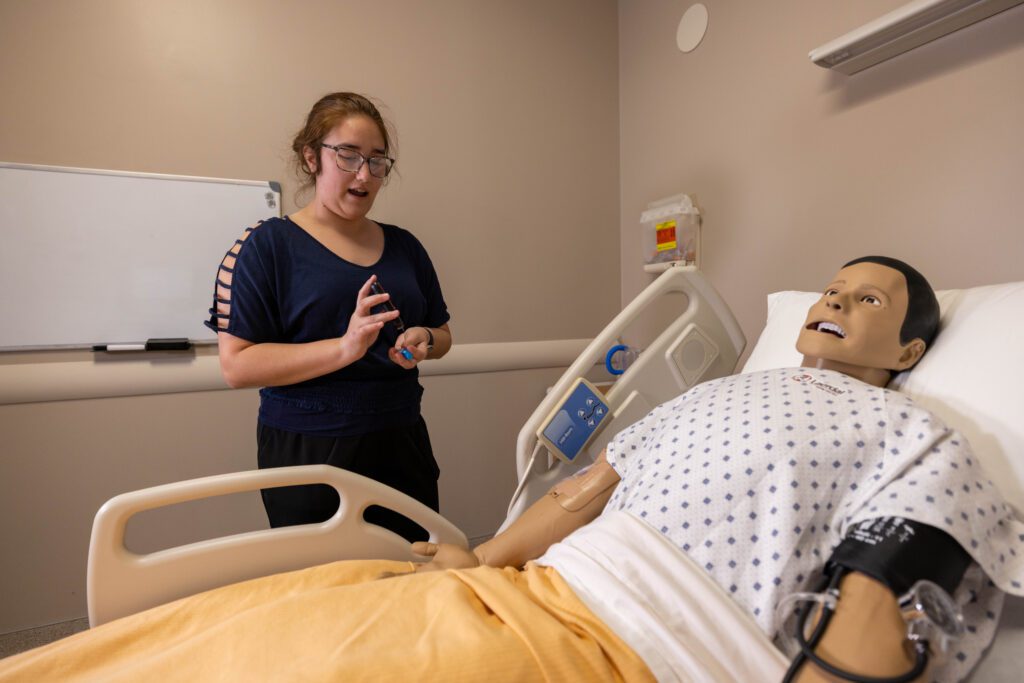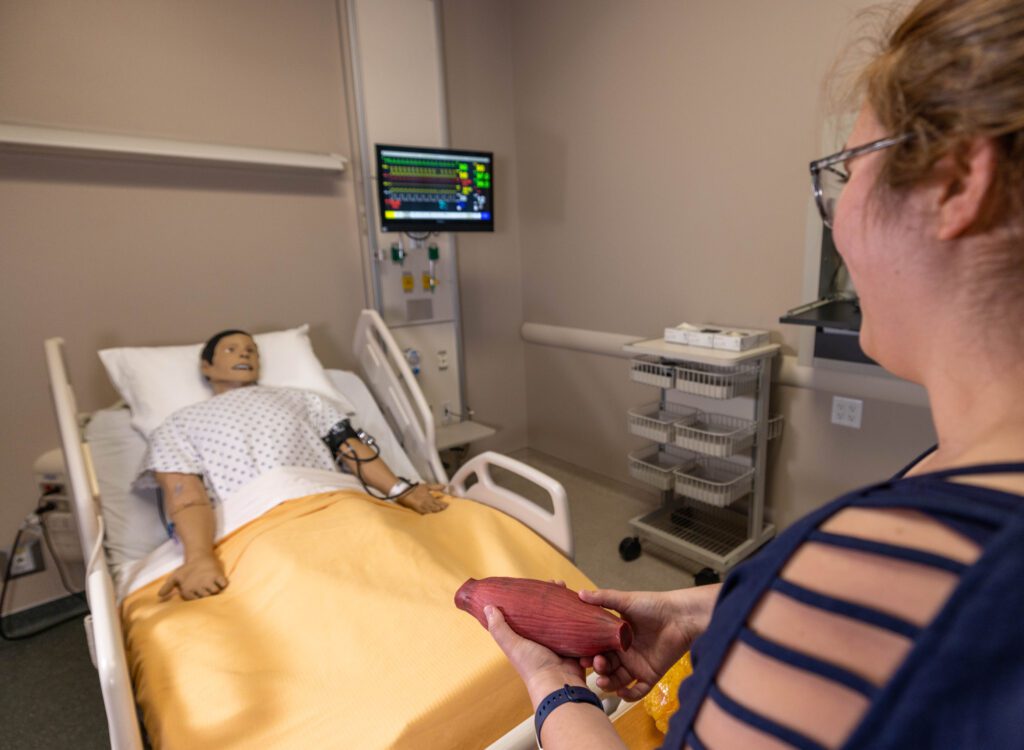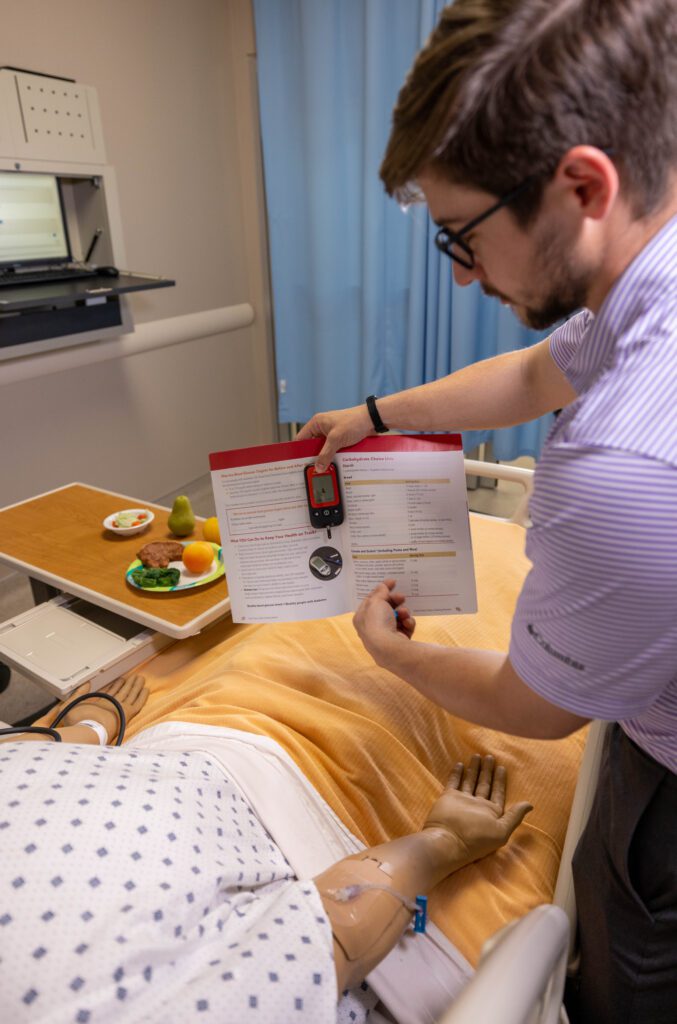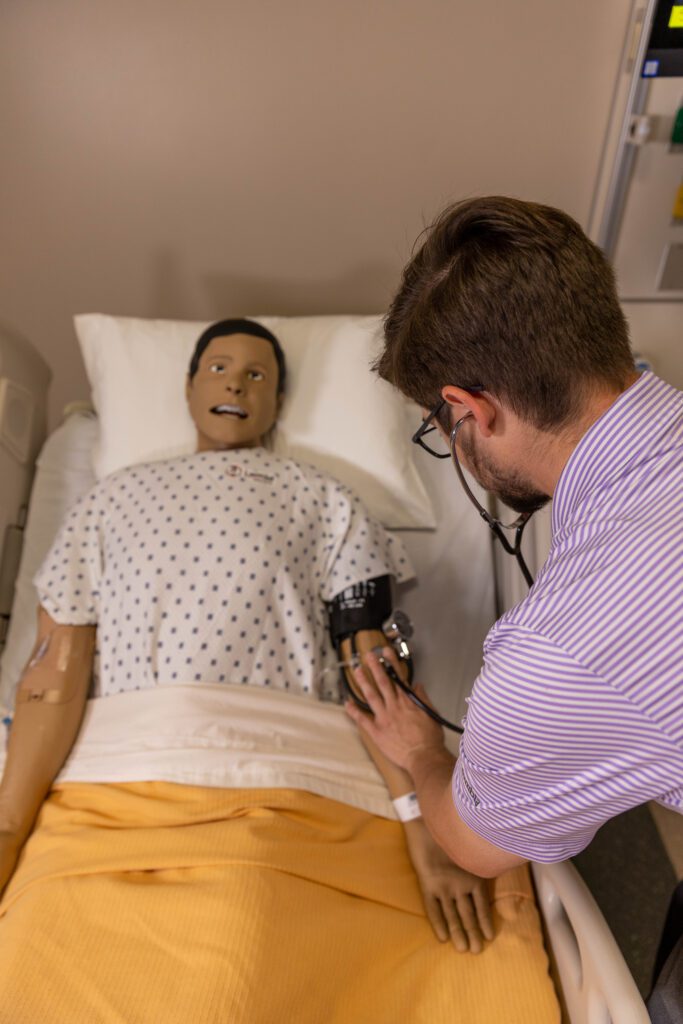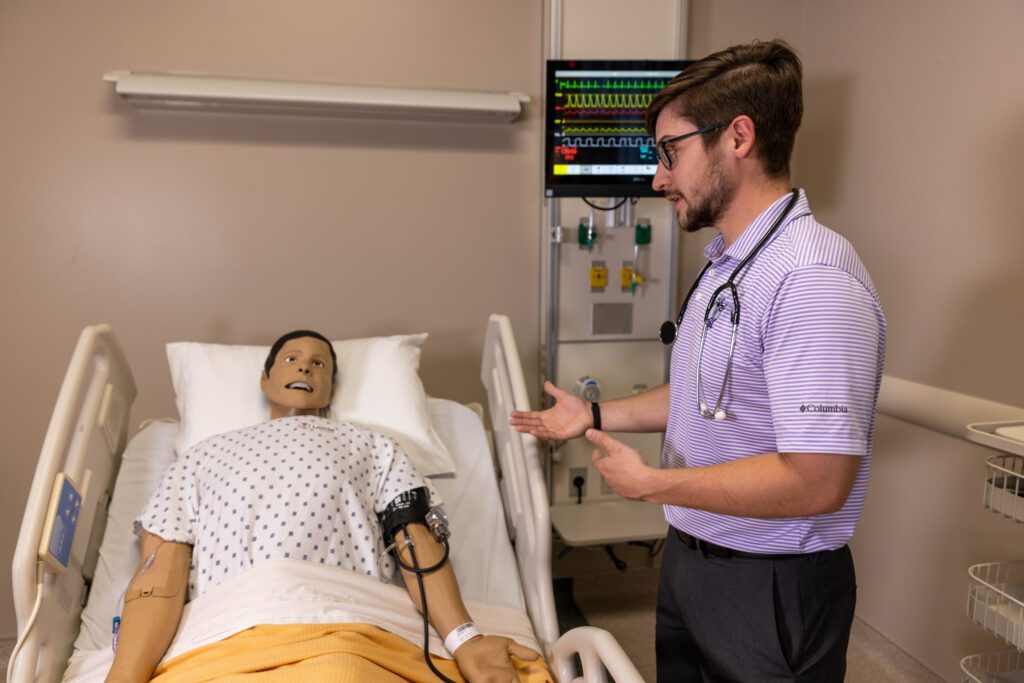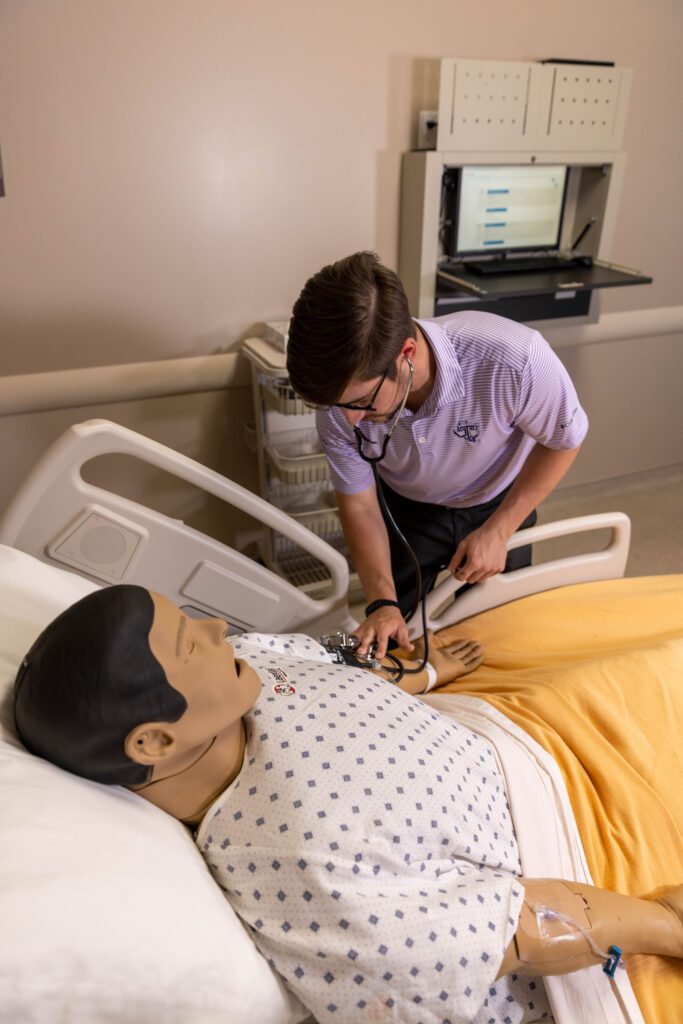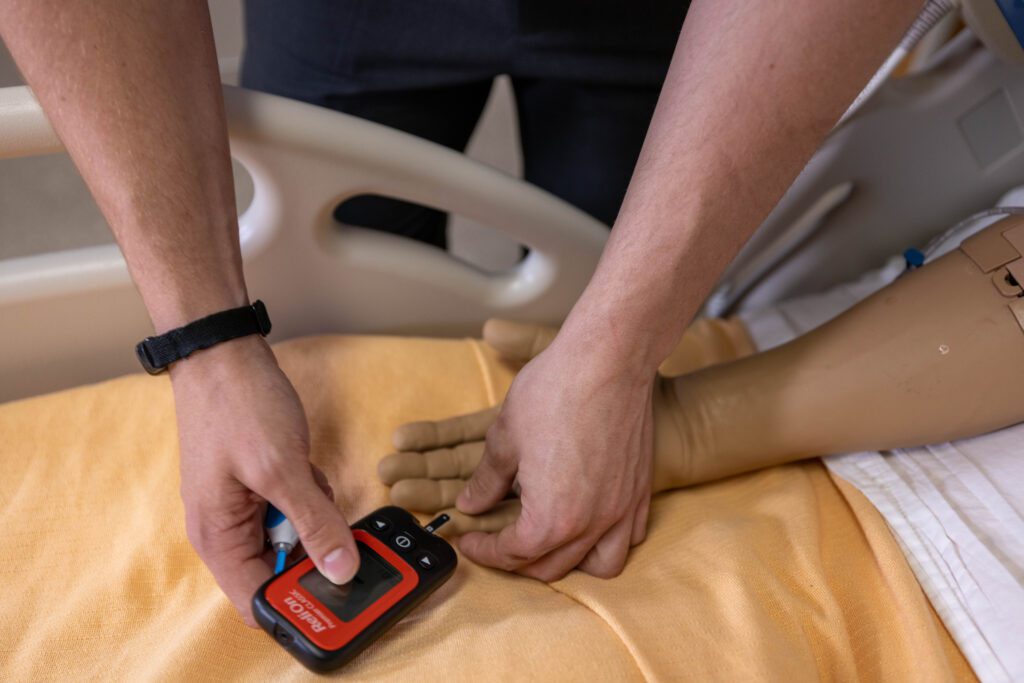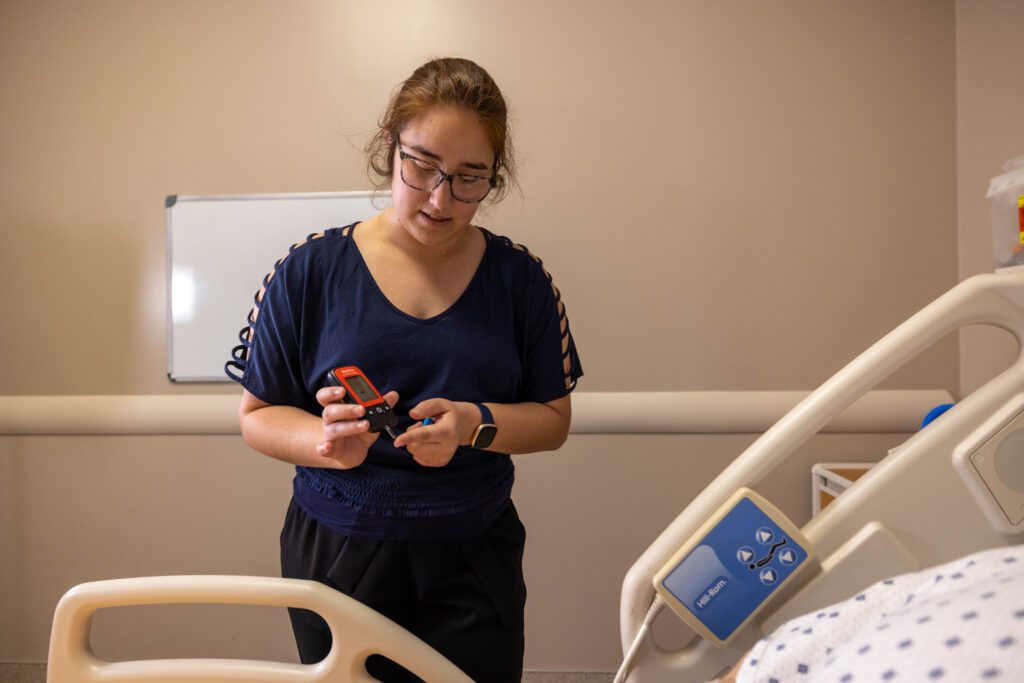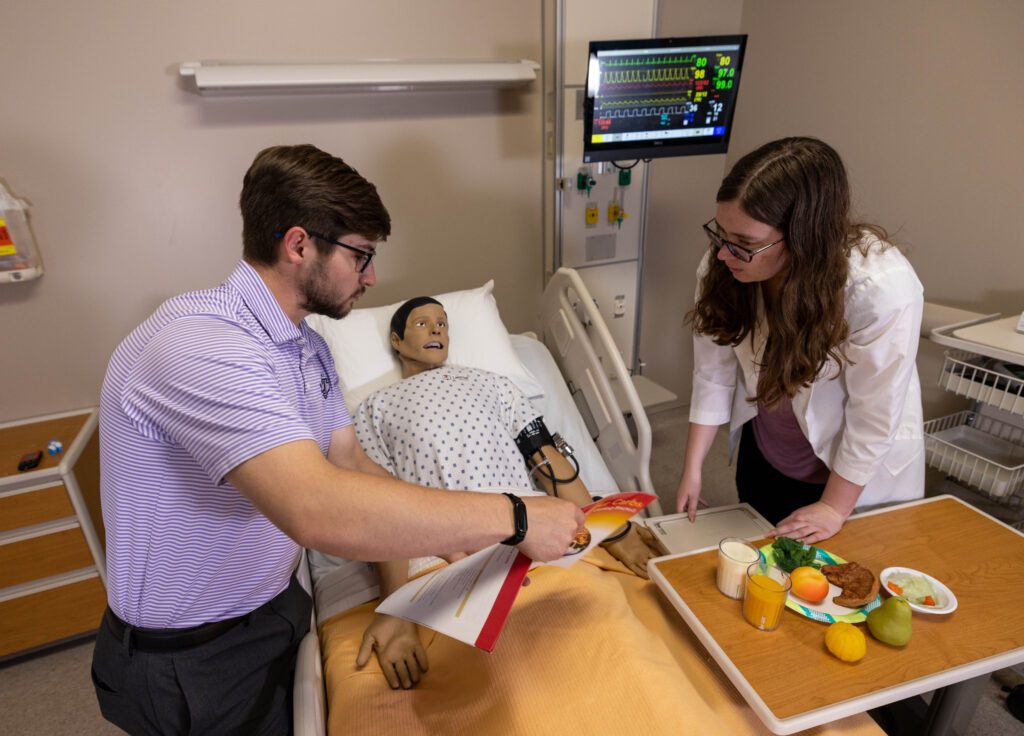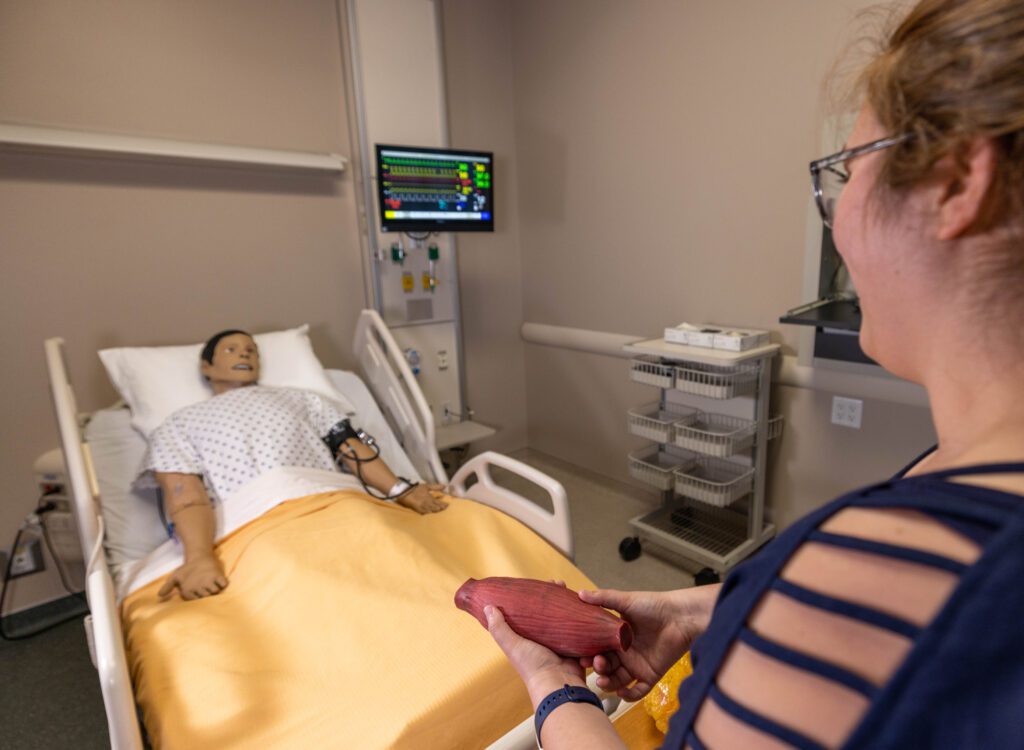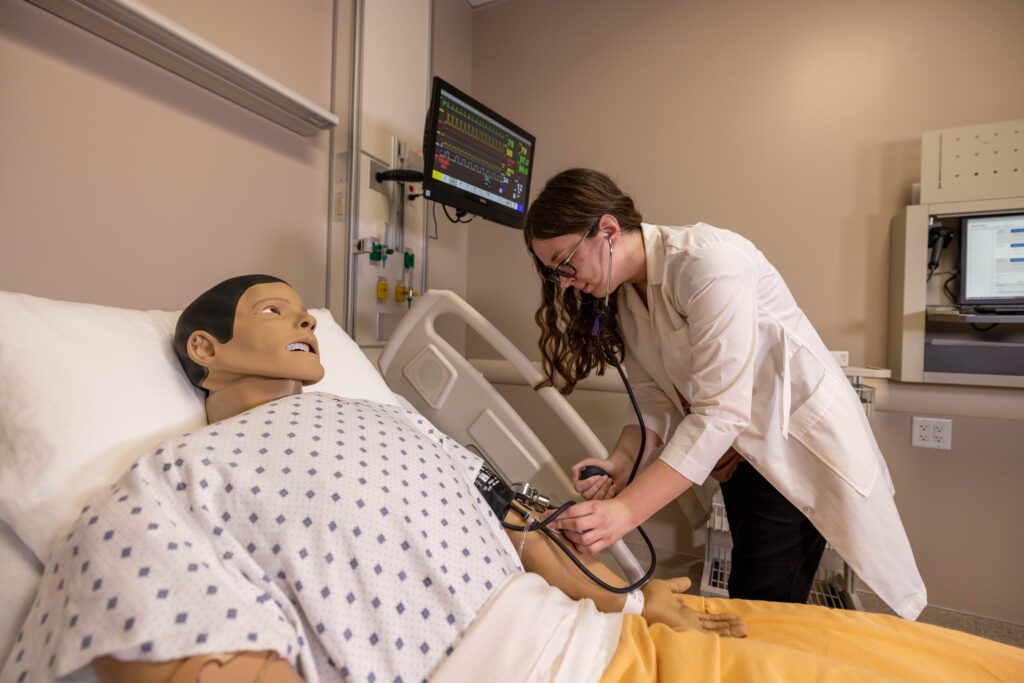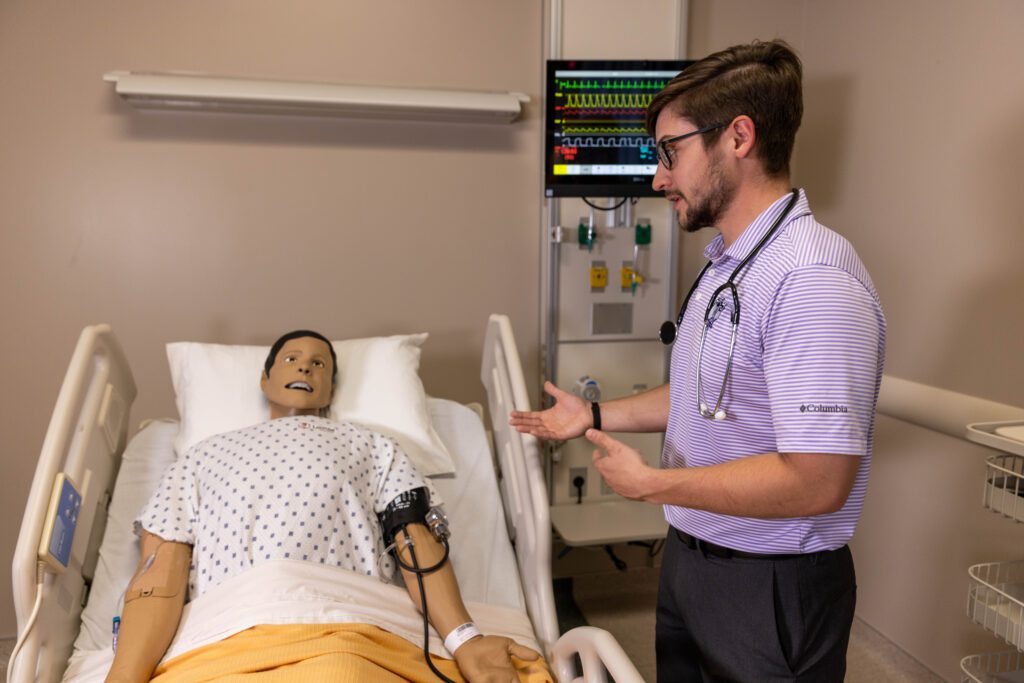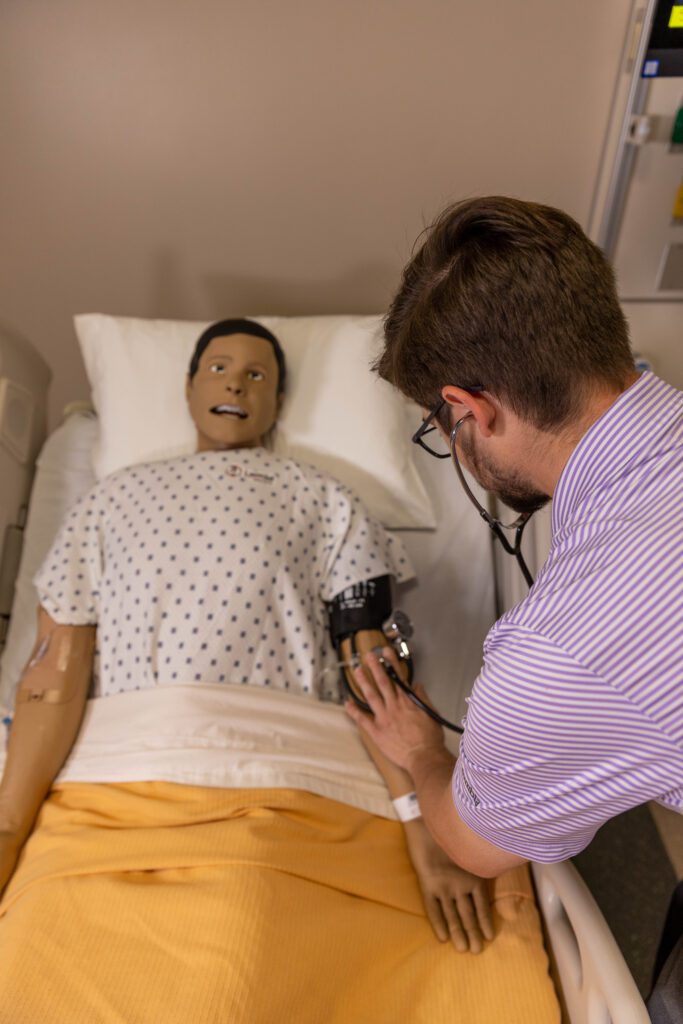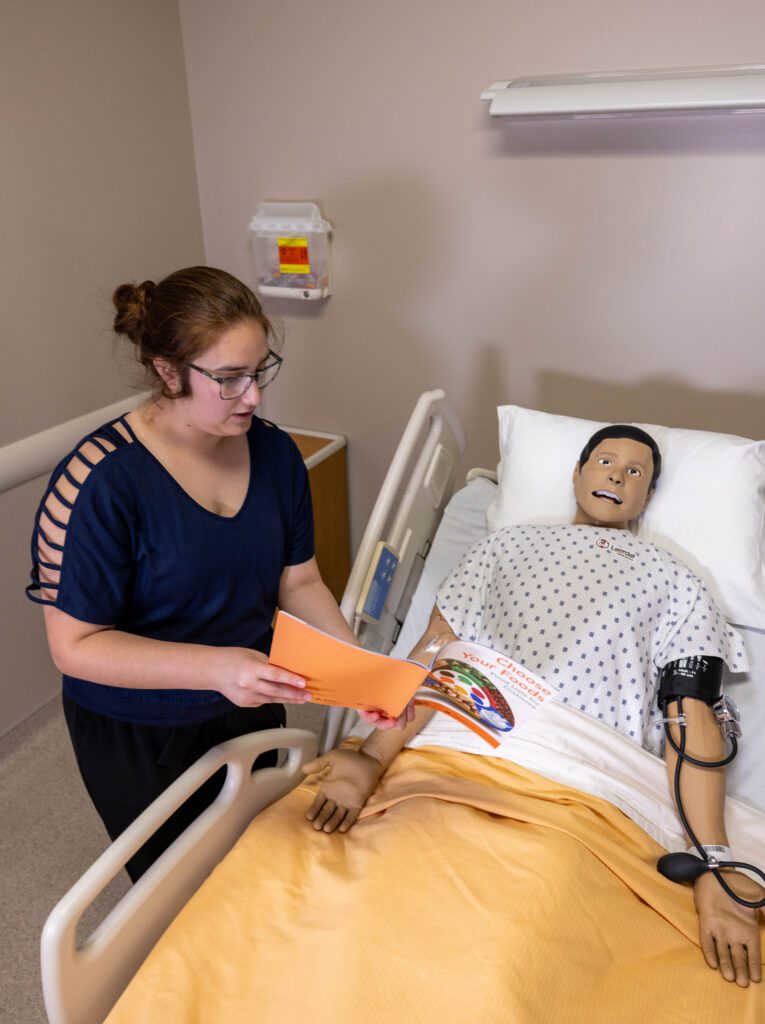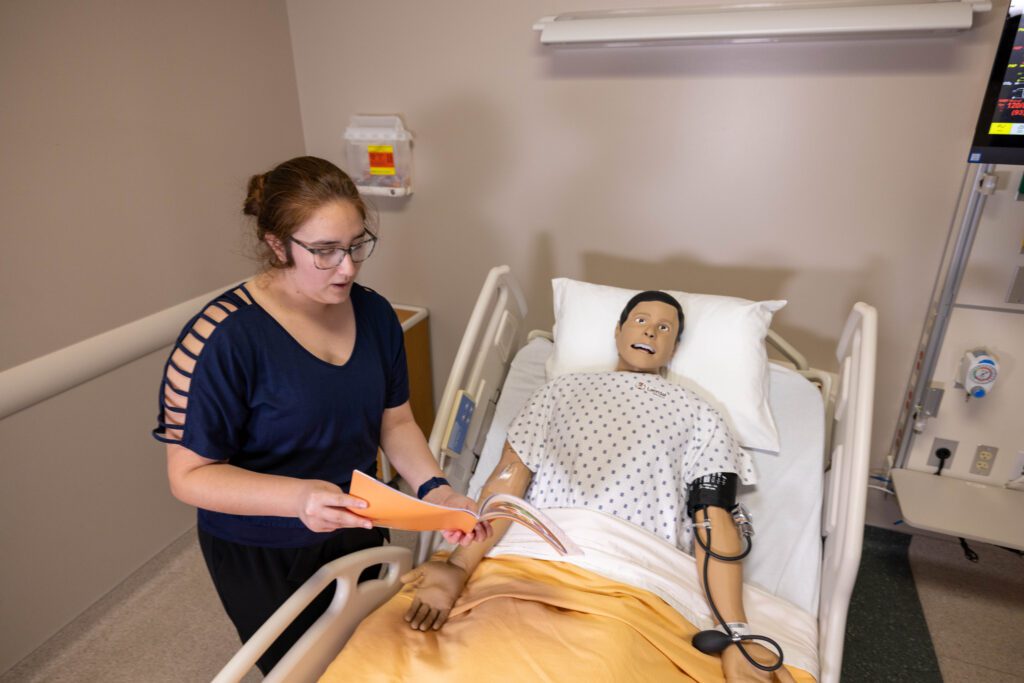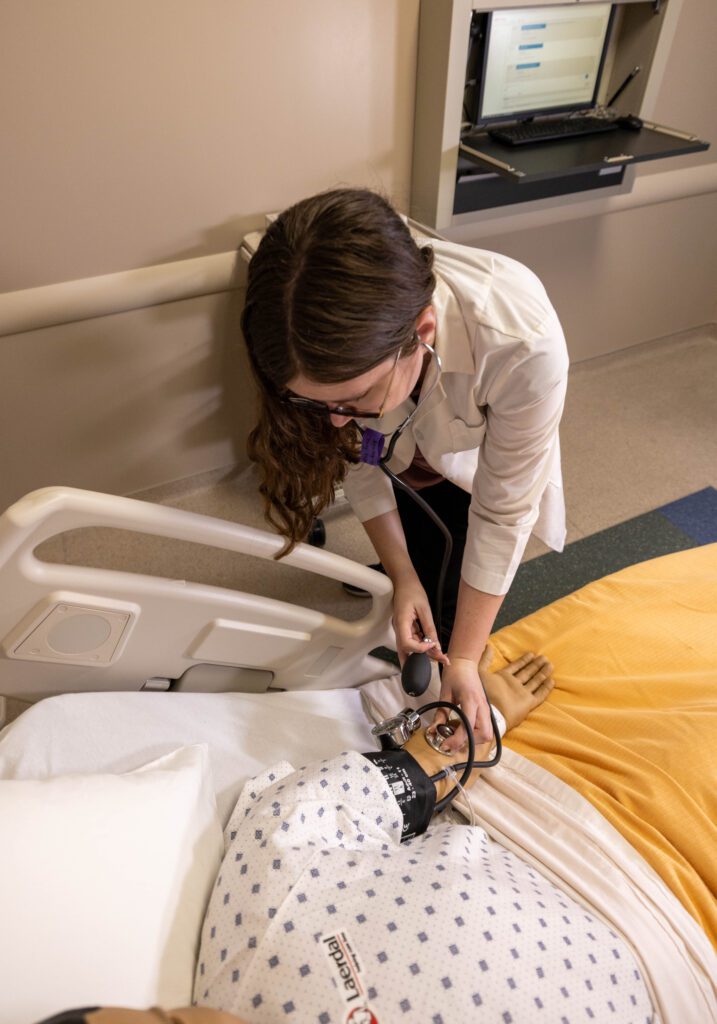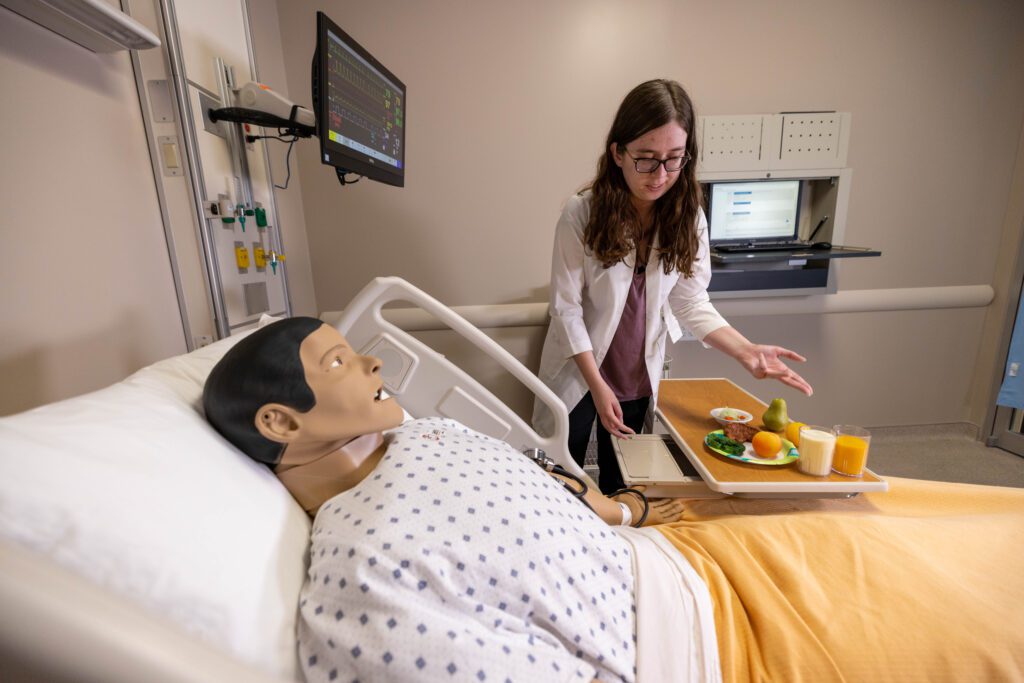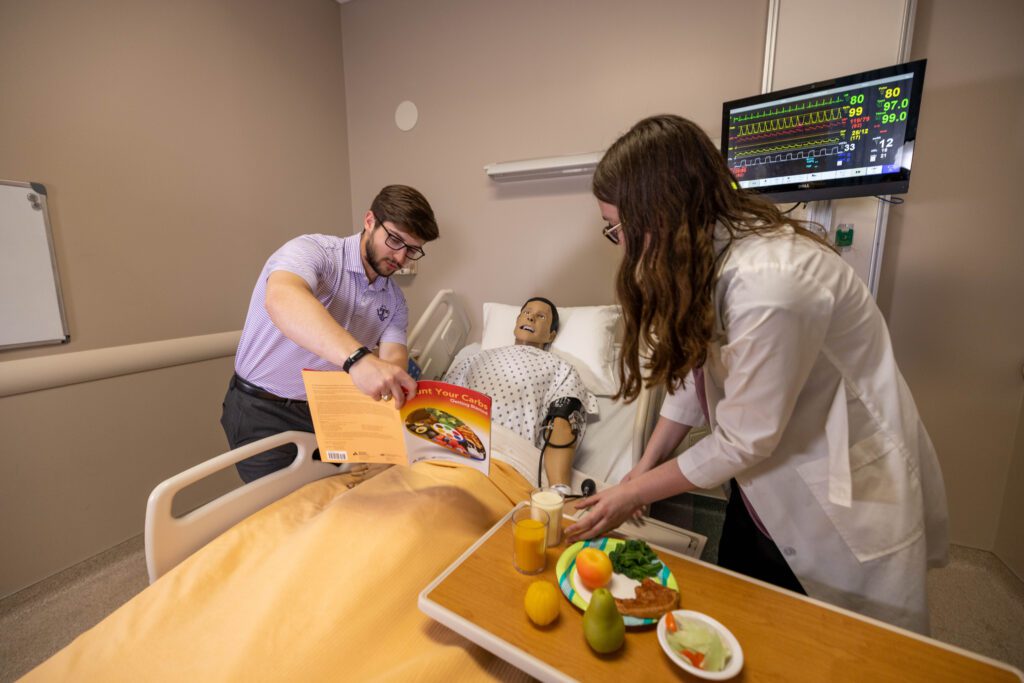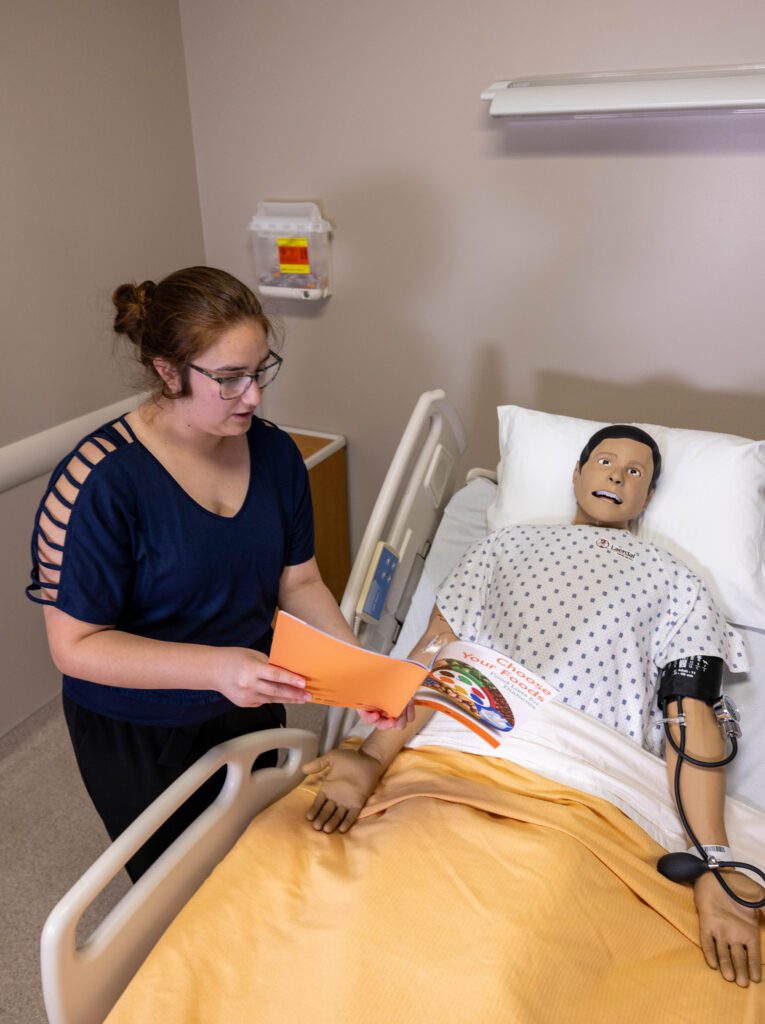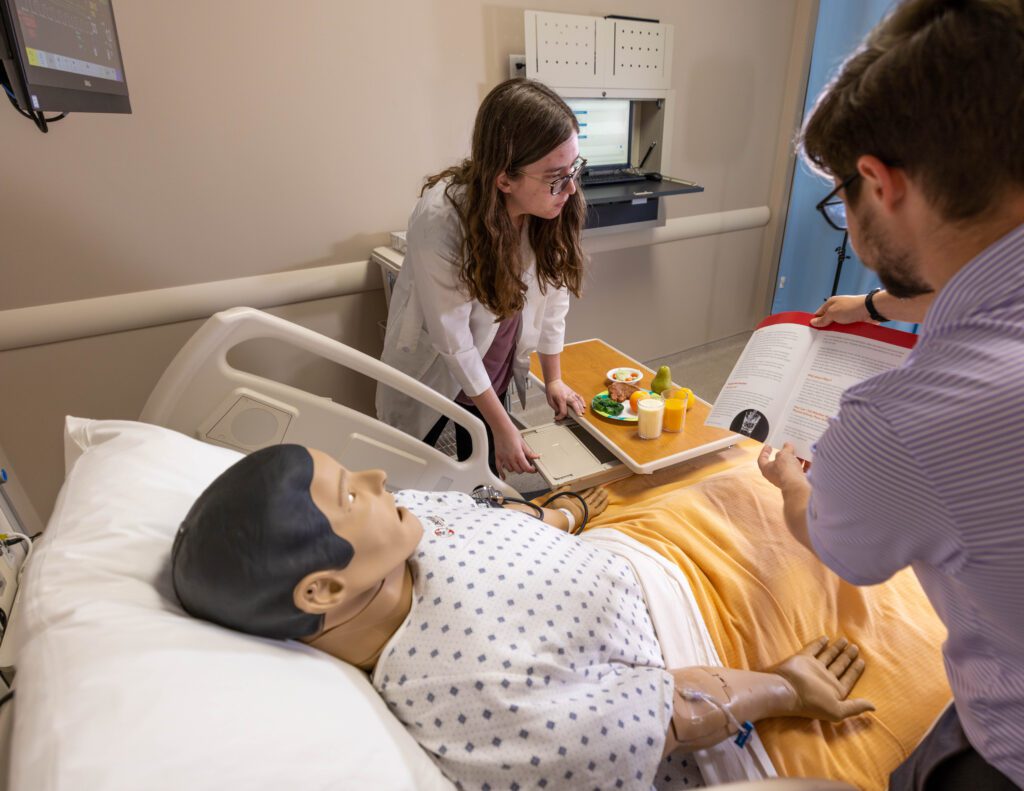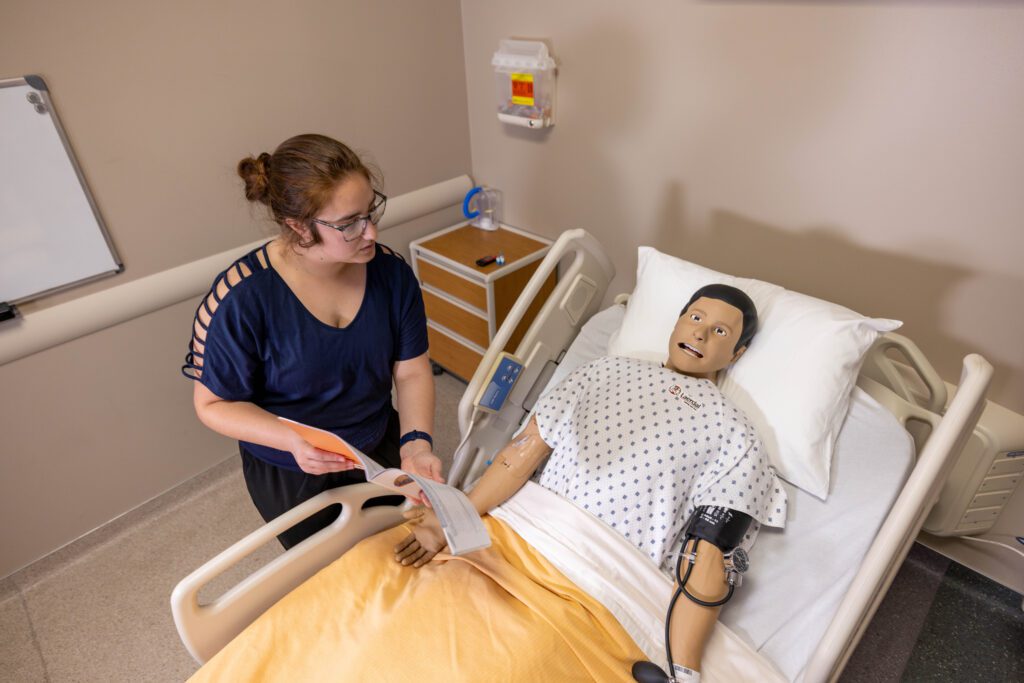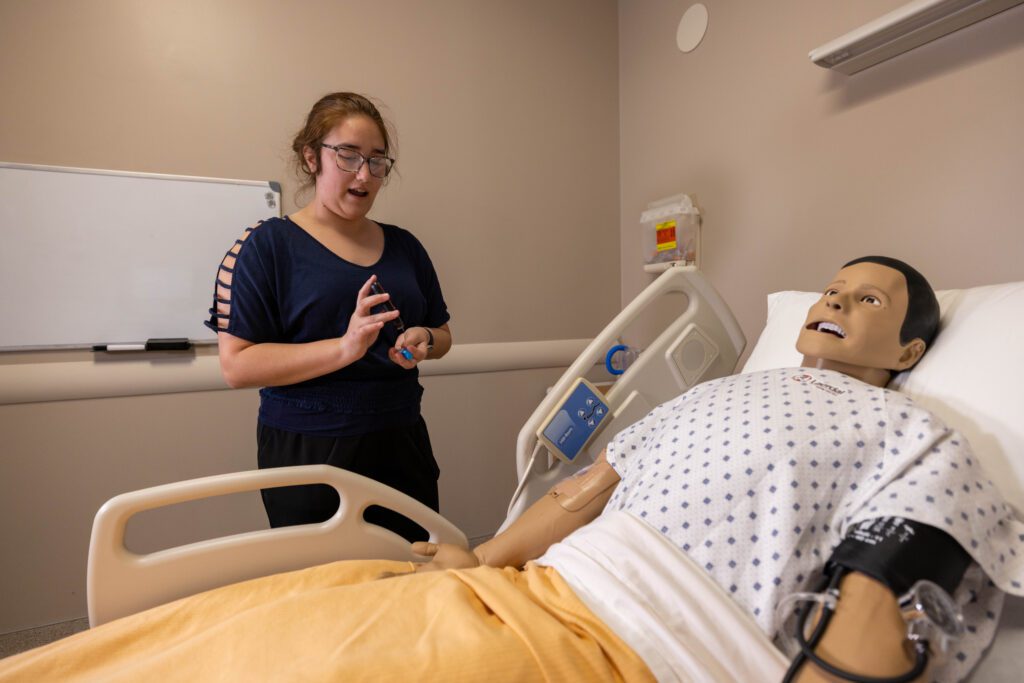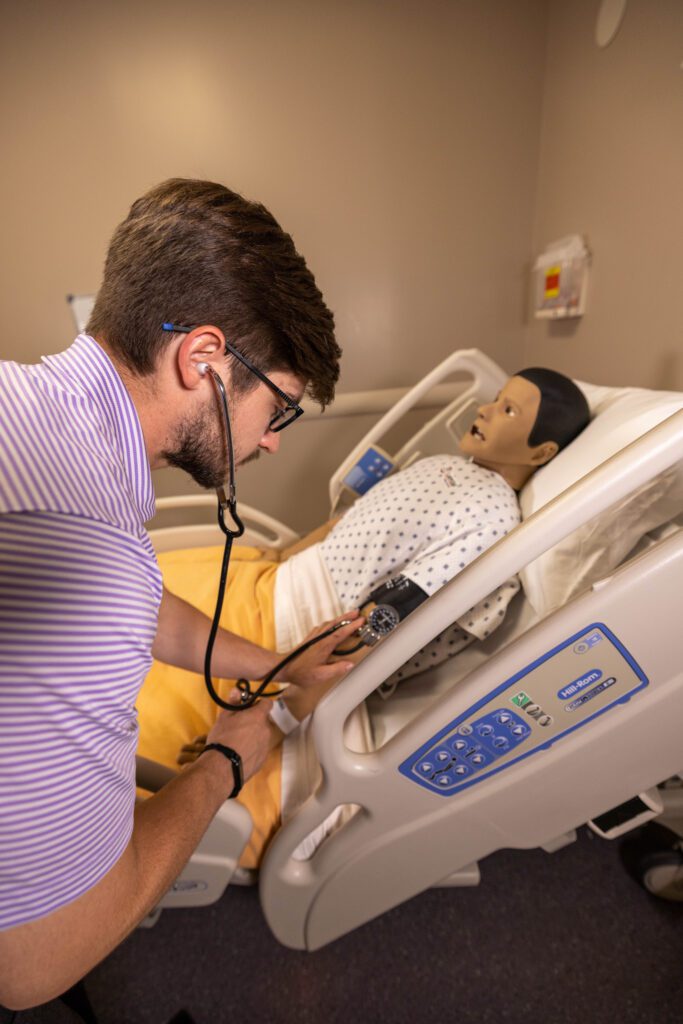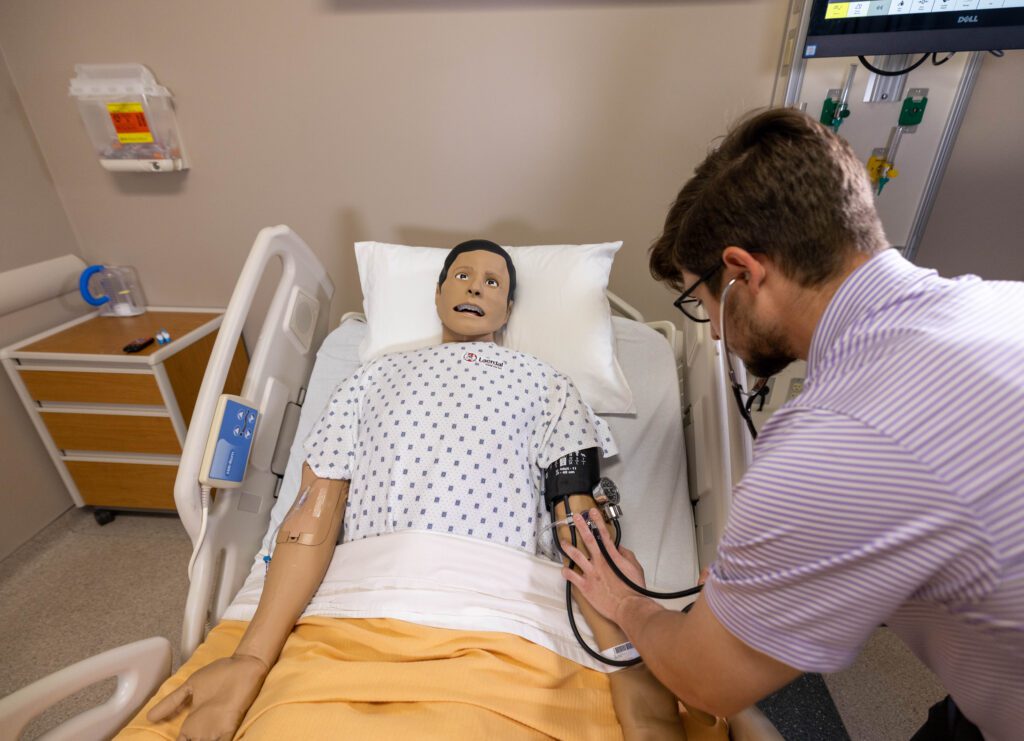Didactic Program in Dietetics (DPD)

Resources
- On the Degree Plan +
- DPD Student Handbook +
- Dietetic Internship Information for DPD students
- For more information, reference the DPD handbook or reach out to your program coordinator.
- Contact program coordinator:
- Contact DPD Director:
- Sarah Drake or + 936-468-5560
- The Didactic Program in Dietetics Consortium at Tarleton State University is a partnership with Stephen F. Austin State University and is currently granted Accreditation by the Accreditation Council for Education in Nutrition and Dietetics (ACEND) of the Academy for Nutrition and Dietetics.
- ACEND Contact Information
- Accreditation Council for Education in Nutrition and Dietetics (ACEND) 120 South Riverside Plaza, Suite 2190, Chicago, IL 60606-6995 (312) 899-0400 ext. 5400 [email protected]

Dietetics Mission, Goals and Objective
Program Mission Statement
The mission of the DPD Consortium at Tarleton State University and Stephen F. Austin State University is to prepare high quality graduates for supervised practice leading to eligibility for the CDR credentialing exam to become registered dietitian nutritionists.
Objectives and Goals
The program outcome measures are as follows:
Goal #1 – Program graduates will be prepared for success in graduate studies, supervised practice, or as dietetics professionals.
1. At least 80% of students will complete the DPD program/degree requirements within 6 years (150% of program length).
2. At least 60% percent of program graduates apply for admission to a supervised practice program prior to or within 12 months of graduation.
3. Of program graduates who apply to a supervised practice program, at least 80% percent are admitted within 12 months of graduation.
4. The program’s one-year pass rate (graduates who pass the registration exam within one year of first attempt) on the CDR credentialing exam for dietitian nutritionists is at least 80%.
5. When surveyed, the mean rating that supervised practice directors/preceptors and employers will give for “area of practice” competence will meet or exceed the rating of satisfactory (3).
6. 60% of graduates who seek employment will find employment within one year of graduation.
Goal # 2 – Program graduates will demonstrate the confidence and skills necessary for success in supervised practice programs and dietetics-related jobs.
1. When surveyed, the mean rating that DPD Alumni will give for how valuable DPD courses were in preparing them for the internship or a dietetics-related job will meet or exceed the rating of satisfactory (3).
2. When surveyed, the mean rating that senior DPD students will give for how confident they feel that the DPD courses will prepare them for the internship or a dietetics related job will meet or exceed the rating of satisfactory (3).
Student Learning Outcomes
Student learning outcomes (SLO) are the knowledge, skills and abilities students should demonstrate upon completion of the program. These SLO, also known as Knowledge for Registered Dietitian Nutritionists (KRDN), are required by ACEND and are regularly assessed to determine student learning and to evaluate overall program effectiveness. All ACEND-required SLO must be submitted through LiveText (a data management program) to receive credit. Specifics of this program are covered in the course syllabi.
Program data related to the goals, objectives and outcomes is available upon request.
Didactic Program in Dietetics (DPD)
What is a Didactic Program in Dietetics (DPD)?
A Didactic Program in Dietetics is accredited by the Accreditation Council for Education in Nutrition and Dietetics (ACEND). A DPD program equips you with the knowledge required of a registered dietitian nutritionist (RDN) also called a RD. As an RDN, you will use your advanced knowledge of food and nutrition to help promote health and help prevent and treat chronic disease.
Your dietetics degree will prepare you for a graduate program dietetic internship (DI) and you’ll receive a verification statement at the end of this program indicating that you have met the requirements to apply for a dietetic internship.
DPD Consortium Program with Stephen F. Austin State University
The DPD consortium between Tarleton State University and Stephen F. Austin State University was approved August 2020 by the Accreditation Council for Education in Nutrition and Dietetics (ACEND). The Tarleton program is housed in the College of Health Sciences and Human Services in the Department of Medical Laboratory Sciences, Public Health, & Nutrition Science on the Stephenville campus.
There are no specific admission requirements for the DPD program. Interested students will follow the admission requirements outlined by the university. More information on program completion and graduation requirements can be found in the TSU DPD Consortium Student Handbook.
The Dietetics concentration is the pathway that equips students with food, nutrition and dietetics knowledge required of a registered dietitian. In addition to a B.S. in Nutrition Science with a concentration in Dietetics, students will receive a verification statement from Stephen F. Austin State University as the provider institution of the ACEND DPD. The program is only available on the Stephenville campus. The verification statement indicates graduates have met the requirements to apply for dietetic internship. As part of the program requirement TSU DPD students will take the following 6 courses through Stephen F. Austin State University via distance education. (No travel or relocation required).
Consortium Courses taken with Stephen F. Austin State University
| Course Number | Course Name |
|---|---|
| NUTR 4305 (RISTO 4331) | Food Service Management |
| NUTR 4309 | Community Nutrition |
| NUTR 4325 | Nutrition Counseling |
| NUTR 4339 | Advanced Nutrition |
| NUTR 4349 | MNT I |
| NUTR 4379 | MNT II |
The TSU students will register and pay tuition through TSU by filling out the DPD Consortium registration form with program coordinator, Paula McKeehan, MS, RD, LD. The course will be taught through SFA and appear on TSU transcript. There will be no additional cost to the TSU student except for standard online instruction fees. Those can be explained and calculated by visiting the tuition calculator.
Online Learning Requirements
The six consortium courses taught by instructors at Stephen F. Austin State University instructors make learning flexible. Online learning does require that you have a secure and reliable internet connection, as well as access to a computer, webcam and audio. Tarleton
students can utilize resources in the https://www.tarleton.edu/technology/tech-spot/
Academic Calendar
How to become a Registered Dietitian
The registered dietitian is the nutrition and food expert. To become a part of the growing and vital profession of dietetics, take the following steps:
- 1. Complete a baccalaureate didactic degree program that is accredited by the Accreditation Council for Education in Nutrition and Dietetics (ACEND) such as the dietetics concentration DPD Consortium at Tarleton. Upon graduation, students will receive a verification statement of completion. As part of the consortium agreement, the degree will be awarded by Tarleton and the verification statement with be issued by Stephen F. Austin State University. Please see the SFA DPD Verification Statement Policy for more information. The Dietetics concentration in the Bachelor’ of Science in the Nutrition Science is the only ACEND-accredited Didactic Program in Dietetics (DPD) degree track at Tarleton. More information on program completion and graduation requirements can be found in the TSU DPD Consortium Student Handbook.
- 2. Acquire supervised practice experience by applying for and successfully completing an ACEND-accredited supervised practice program, commonly referred to as a Dietetic Internship (DI).
- 3. Pass the Commission on Dietetic Registration (CDR) credentialing exam for Registration Dietitian Nutritionist (RDN).
The State of Texas does have licensure for RDNs and many employers in Texas may require licensure. Information on licensure for the State of Texas can be found on the Texas Department of Licensure and Regulation website. This CDR document includes a listing of state and U.S. territory licensure and certification/laws.
Upon receiving your BS in nutrition science with a concentration in dietetics and your verification statement, if you do not wish to complete a dietitian internship, you are still eligible to become a dietetic technician, registered (NDTR). For more information on this, please contact the DPD director.
Effective January 1, 2024, the CDR will require a minimum of a master’s degree to be eligible to take the credentialing exam to become a registered dietitian nutritionist (RDN). In addition, the CDR requires that individuals complete coursework and supervised practice in program(s) accredited by ACEND. Graduates who successfully complete the ACEND-accredited DPD at TSU are eligible to apply to an ACEND-accredited supervised practice program such. Once they have completed the 1,000-hour supervised practice experience, candidates are eligible to apply to take the CDR credentialing exam to become an RDN. For more information about educational pathways to become an RDN, visit the Academy for Nutrition and Dietetics’ information for students webpage.
Assessment of Prior Learning
Per Tarleton’s DPD consortium agreement with Stephen F. Austin State University, post-baccalaureate students seeking a verification statement must apply through SFASU and will have prior learning evaluated by the DPD Director at SFASU. More information on policies and procedures for assessment of prior learning is found in the TSU DPD Consortium student handbook.
For students new to TSU who are transferring in credit, the DPD at TSU follows the university policy related to transfer credits. For more information on transfer credit visit https://www.tarleton.edu/admissions/transfer/
In addition to course credit, the DPD at TSU/SFASU is required to track completion of specific knowledge assessments, known as KRDNs. Each DPD student must receive a 70% or better on all KRDN assessments to receive a verification statement. The verification statement, along with a B.S. degree from our accredited program, is what enables you to go on to apply for a dietetic internship, the next step in becoming a registered dietitian.
KRDN assessments are embedded into upper-level nutrition and food service management courses. If you are transferring in any upper-level (-3000 or -4000) nutrition (NUTR) or food service management (RSTO) courses, the DPD director located at SFASU is required to confirm completion of KRDN assessments before issuing a verification statement.
To do this, you will need to provide a transcript verifying the completion of the course(s) and a syllabus for each course. This should be done the semester following completion of the course, or at least 6 weeks prior to graduation. The DPD director will review both the transcripts and syllabus, and complete a form known as the “Knowledge (KRDN) Assessment for Transfer Credits.” If it is determined that you did not meet the KRDNs with the transfer credits, you will be asked complete KRDN assessments outside of your coursework at TSU. You must complete all KRDN assessments with a 70% or better prior to graduation and, if you do not, you will not be issued a verification statement of completion.
More information about policies and procedures for assessment of prior learning can be found in the TSU DPD Consortium Student Handbook.
Remediation Protocol
Beginning in Fall 2022, DPD faculty will start to track student grades on all assessments associated with KRDNs. The criterion for demonstrating satisfactory performance is a 70% or greater on all assignments associated with KRDNs. This must be met for all DPD KRDNs for the student to receive a verification statement, and students will be made aware of this in NUTR 1307, as well as by the policy in DPD handbook and a statement on the DPD website. If a student receives less than a 70%, remediation will be required. Below is a step-by-step description of the protocol for remediation:
- A DPD student receives a grade less than 70% on an assignment associated with a KRDN. Instructor of record contacts the student, letting the student know that they must re-submit the assignment in Canvas or Qualtrics University and must receive a grade of 70% or better on the re-submission. With this email from the instructor, students will also receive a link to the remediation policy in the DPD Student Handbook. The instructor of record will indicate the name of the student, KRDN requiring remediation, and date of first remediation submission attempt in an Excel spreadsheet housed within the DPD Microsoft Teams folder. In the aforementioned excel, the instructor of record will indicate whether the student successfully or unsuccessfully completed remediation.
If a student is unsuccessful at completing remediation, that student will be contacted by the DPD Director. The DPD Director will then work with the student on further remediation efforts.
Cost of attendance and Financial Resources
Student Expenses
Rates
Tarleton DPD consortium students will not incur any additional costs. The standard distance course fee will be applied to the six distance consortium courses (listed above). DPD students are encouraged to join the Dietetics and Food Profession Organization (no fee) and Academy of Nutrition and Dietetics, $58 membership fee.
Tarleton supports a live-on requirement of two years for new incoming students (freshmen) and transfer students with less than 12 credit hours, including students with AP and dual-credit. Transfer students with more than 12 credit hours are required to live on campus for 1 year. All residential students are required to have a meal plan. Visit housing for more information on pricing.
| Tuition | Cost |
|---|---|
| Texas Resident – Undergraduate | $194.36 per hour |
| Differential Tuition – College of Health Sciences and Human Services | $52.79 per hour |
| Tuition | Cost |
|---|---|
| Texas Resident – Undergraduate | $179.04 per hour |
| Nonresident – Undergraduate | $588.04 per hour |
| Differential Tuition – College of Health Sciences And Human Services | $50.27 per hour |
| Service | Cost |
|---|---|
| University Services Fee – Undergraduate | $94.04 per hour |
| Health Service Fee | $4.91 per hour |
| Excessive Hours Fee | $100.00 per hour |
| Intercollegiate Athletics Fee | $35.00 per hour with $455.00 maximum |
| Parking Fee | $100.00 |
| Recreational Sports Fee | $100.00 per semester |
| Repeated Courses Fee | $100.00 per hour |
| Room Application Fee (required, nonrefundable, residence hall students) | $100.00 |
| Student Center Facility Fee | $3.96 per hour with $39.60 maximum |
Visit Tarleton expenses for detailed explanation.
Financial Aid and Program Scholarships
Financial Aid and Program Scholarships
Tarleton State University provides over $106 million annually in financial aid. Learn how the Office of Financial Aid can help you fund your educational goals. Contact the Office of Financial Aid.
Students interested can apply for scholarships. Nutrition Sciences offers Jewell Taylor Dietetics scholarship. Students interested in this scholarship must complete the general scholarships application.
The DPD program is mandatory for those wanting to pursue a career as a registered dietitian nutritionist (RDN) and a dietetic technician, registered (DTR).
DPD Students
